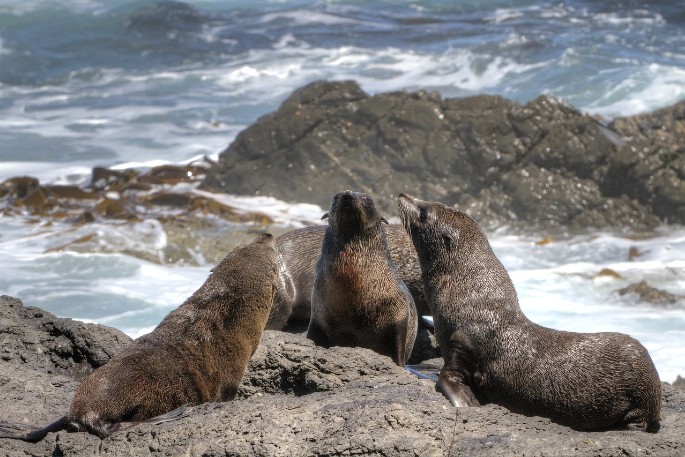This Content Is Only For Subscribers
New data from the Department of Conservation shows an upward trend in reported incidents of dogs attacking or harassing protected wildlife, including seals, sea lions, penguins and kiwi.
DOC principal investigation officer Hayden Loper says a report compiled by the National Compliance Team recorded 75 incidents involving dogs attacking, killing or harassing seals or sea lions between Wednesday, September 9, 2020, and Tuesday, August 12, 2025.
“Deaths of seals and sea lions have occurred in every year, with a noticeable spike in 2024,” Hayden says. “August is the most common month for attacks, as it aligns with the breeding season.”
The data release coincides with the sentencing this week of a man in Nelson District Court, who was fined $2000 after his two dogs attacked a fur seal at Kina Beach near Motueka in September 2024. The dogs were ordered to be destroyed.
Hayden says the attacks extend beyond marine mammals, with 96 incidents over the same five-year period involving other protected species, including kiwi and penguins.
“It’s the owner’s responsibility to keep their dog under control,” Hayden says. “It’s not just untrained or aggressive dogs that kill protected wildlife — even small or well-trained pets can cause serious injury or death when not controlled.”
Under the Dog Control Act, it is an offence to own a dog that attacks protected wildlife. The maximum penalty is three years in prison or a $20,000 fine, and the dog will almost always be destroyed.
“DOC will investigate all reported incidents of dogs attacking or harassing wildlife,” Hayden says. “The best way the public can help is by reporting any incident by calling 0800 DOC HOT.”
Hayden says harassment remains the most common form of interaction between dogs and wildlife, but attacks and injuries have been increasing in recent years.
He encourages dog owners to seek wildlife-avoidance training to help prevent incidents.
“We need dog owners who are out enjoying nature to take responsibility for their animals and keep them away from protected species,” he says. “It’s best to get them trained and not need it, than skip the training and have an incident.”



